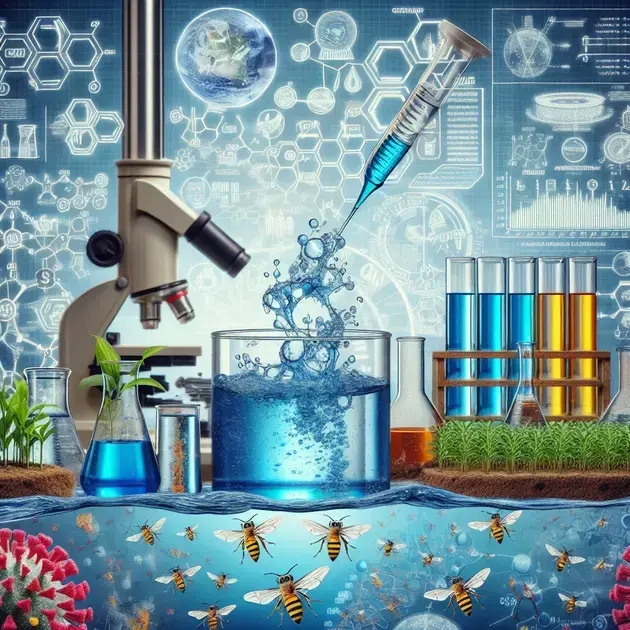Title: Neonicotinoids: A Potential Threat to Drinking Water Quality
Introduction:
In recent years, there has been growing concern regarding the impact of neonicotinoid insecticides on pollinator populations. These systemic pesticides have been widely used in agriculture to protect crops from pests. However, a new study sheds light on another potential consequence of neonicotinoid use – the contamination of ground and surface water sources, which could ultimately pose a risk to our drinking water.
The Study:
The research, conducted by a team of scientists, aimed to investigate the presence of neonicotinoids in various water sources. They sampled ground and surface water from different regions and analyzed the samples for the presence of these specific insecticides. The findings were cause for concern, as high concentrations of neonicotinoids were detected in several water sources.
Implications for Drinking Water:
The discovery of neonicotinoids in drinking water sources raises alarm bells, as these pesticides have been associated with numerous adverse effects on human health and the environment. The potential risk stems from the fact that these insecticides can accumulate in water, leading to prolonged exposure for those who consume it.
Health Risks:
Studies have shown that exposure to neonicotinoids may have neurotoxic effects on human beings. These neurotoxins have been linked to developmental disorders in children, such as attention deficit hyperactivity disorder (ADHD), and have also been associated with negative impacts on the reproductive system.
Ecological Consequences:
Apart from the direct risks to human health, the presence of neonicotinoids in water sources poses a threat to aquatic organisms and terrestrial ecosystems. Bees and other pollinators, pivotal for crop production, are particularly vulnerable to these insecticides. Their prolonged exposure can disrupt their behavior, navigation, and reproduction, ultimately leading to population decline.
Regulatory Measures:
In response to growing concerns, some countries have taken regulatory action to restrict the use of neonicotinoids. The European Union, for example, has imposed partial bans on certain neonicotinoid pesticides since 2013, recognizing the potential threats they pose to bee populations and the environment. Such restrictions aim to limit the overall level of contamination and protect vital ecosystems.
Conclusion:
The detection of neonicotinoids at high concentrations in ground and surface water sources raises serious concerns over the quality of our drinking water. The potential health risks posed by these insecticides necessitate further research and robust regulation. It is crucial for governments, scientists, and stakeholders to collaborate and develop sustainable alternatives to neonicotinoids, ensuring the protection of human health and ecosystems alike. Safeguarding our drinking water must remain a top priority in the face of emerging environmental challenges.
